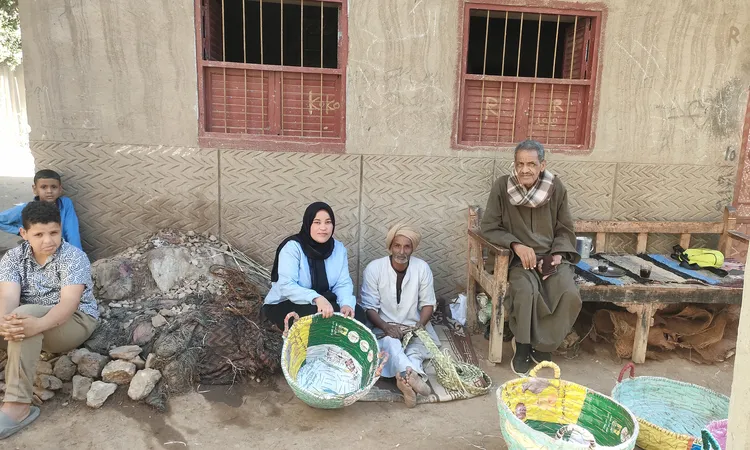عم عبد العليم: أقدم صانع مقاطف بقنا يحكي قصص الضفائر والحرير

In the quiet countryside of Upper Egypt, a rare tradition clings to life through the skilled hands of a few artisans. Among them is Abdulalim Zahri Kilani Ahmed, a 65-year-old craftsman, who spends his days weaving palm fronds into intricate baskets known locally as “mqataf” and “alaayeq”—terms familiar only to those who have mastered this nearly vanishing craft. These woven creations serve many purposes, from storing grain and flour to carrying food and preserving sun-dried bread, reflecting a rich heritage deeply rooted in rural life.
Abdulalim sits beneath the shade of an old wall outside his humble home in a village in Qena governorate, embodying a living link to a tradition passed down through generations. His father and grandfather once shaped palm leaves into these practical vessels, a sight he watched from childhood and learned to replicate with dedication. The process begins with gathering the pale, white cores of palm leaves—the “quloob”—which are braided into long strips by hand. This intricate work, known as “fatheel,” involves the mastery of tools like the “masala,” a small, pointed iron piece used for stitching the palm strips, and the “shalq,” slender palm slices coiled tightly during weaving.
Each basket demands a full week of patient craftsmanship. Abdulalim meticulously twists and sews the palm strips into circular shapes, creating sturdy vessels about 50 centimeters high for hanging kits and 80 centimeters for larger baskets. The finishing touches include decorative fibrous cords called “wisham,” which adorn the upper rim, and handles formed for easy carrying. These elements are carefully integrated without modern tools, relying solely on inherited skills and an enduring passion for the craft.
Palm cores are sourced from traders who collect them during the pruning of palm fronds, ensuring the materials remain natural and sustainable. Despite the rise of modern alternatives, Abdulalim’s handmade baskets are prized in local markets and by visitors drawn to their authenticity and connection to the land. He sells them during weekly fairs and often receives orders at his home, testament to the ongoing appreciation for this age-old art.
Beyond his daily work, Abdulalim hopes for renewed support from cultural organizations and officials to preserve and revive traditional crafts like his own. His wish is to see these creations regain their rightful place in the community and safeguard their legacy against extinction. With steadfast resolve, he continues weaving, guided by the belief that loving one’s work is the key to mastering it and living honorably by honest labor.


تعليقات